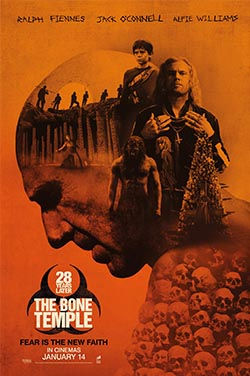Outlaws (Las Leyes de la Frontera) Movie Review
- Rob Cain

- Dec 12, 2021
- 3 min read

Released: 22nd November 2021
Length: 129 Minutes
Certificate: 15
Director: Daniel Monzón
Starring: Chechu Salgado, Begoña Vargas, Marcos Ruiz, Carlos Oviedo, Xavier Martín and Daniel Ibáñez
The sixties and seventies were a time of great social change, particularly among younger people; this gave rise to newer representations in entertainment. One of these was the quinqui genre, a Spanish effort that homed in on delinquency, drugs and love among the lower classes. Outlaws is a return to this style of filmmaking and for the most part it does well in its recreation.

Set in the aftermath of the Franco dictatorship, Spain has started to rebuild as a modern western nation. Ignacio Cañas, known as “Nacho” (Marcos Ruiz) is a middle class man with many dips in his self-esteem. While working at a local arcade, he falls in with a band of rebellious youths led by the seasoned thief Zarco (Chechu Salgado) and the elusive Tere (Begoña Vargas). Suddenly, this shy and socially awkward teenager finds his personal confidence, but at the cost of committing increasingly dubious deeds. The film unfolds through a collection of social gatherings on both sides of the law, but on occasion we’ll swap to the perspective of the authorities. Drug deals, close physical encounters and loud arguments permeate the story which gradually escalates into more tense sequences. The narrative does have some predictable elements; as the group takes on riskier robberies and the police further their investigation, you’ll be well aware of the climax that awaits. The proposed love triangle also falls short, mostly focusing on Nacho and Tere at the expense of others.

Taking place mainly from his perspective, Nacho is undoubtedly the most important element of Outlaws; some may find themselves relating to him as he has that yearning for acceptance from others. The protagonist undergoes an awakening both physically and sexually, gradually growing more distant from his family. Something as simple as removing his glasses reflects this change. Tere, the object of Nacho’s desire, is a constant, unmistakable presence. She’s very sensual, but also has some personal baggage in her family and upbringing that slowly unravels. This kind of contrast persists across the rest of the group, who aren’t as well developed. Zarco, the de-facto leader, is merely passable; because Nacho and Tere take centre stage, he inevitably gets short changed on characterisation. The other members are weak and underused, not making much of an impact until the final act and the same is true of the police detectives. Outlaws needed improved balance to make every member of the cast memorable and engaging. With that said, the film does succeed at showing the distance between Nacho and his new friends; despite his participation in the robberies, there’s a divide between the characters that will never be bridged, something that really pays off in the film’s final moments.

With its time period firmly established, Outlaws offers a worthy late-seventies backdrop. The sets often define where the characters come from and are connected by single shots. One key motif is a bridge that Nacho crosses to reach his newfound friends; it represents the divide between both social classes and their pastimes, featuring multiple times throughout the story. This kind of wider framing goes hand-in-hand with the setting which maintains a solid authenticity. The run-down, poverty stricken neighbourhoods are contrasted with the protagonist’s safe and comfortable home to good effect. The soundtrack mainly uses contemporary music of the time, adding to the immersion. When things do heat up, the camerawork is close and intimate, presenting both sex and violence with high precision alongside some great lighting. The flick is very successful at drawing the audience in.
While the characters and narrative needed to be more rounded, Outlaws succeeds in its portrayal of rebellious 1970s attitudes. The film embraces its older genre trappings and delivers a capable coming-of-age tale with the lead protagonist holding everything together.
Rating: 3.5/5 Stars (Good)










Comments